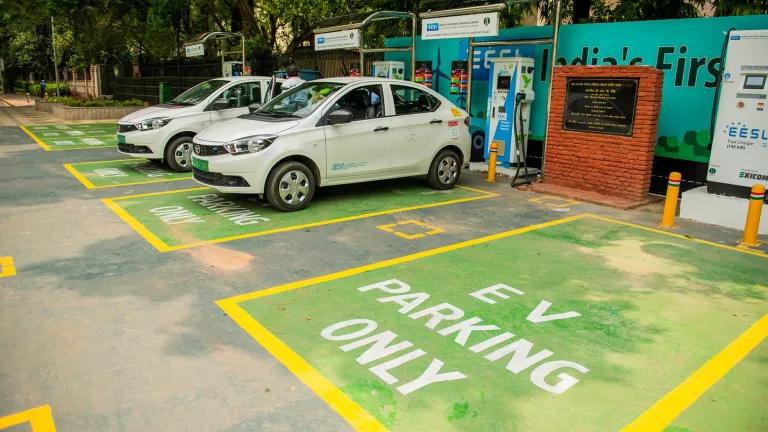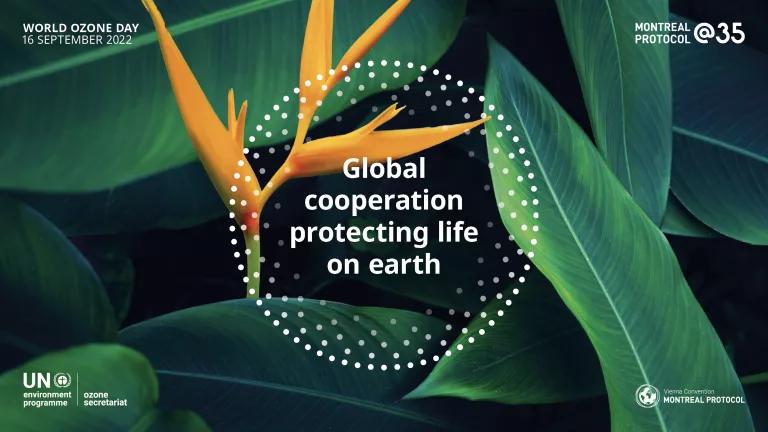Discussing Climate Friendly Cooling in India
To discuss what lies ahead for achieving climate friendly cooling, NRDC and TERI are organizing a high-level brainstorming event this week, with the participation of expert stakeholders representing the government, industry, academia and financial institutions.

Buildings in Delhi with Room Air Conditioners
Co-authored with Nishara Fernando
Millions of people around the world are once again in the grips of dangerous heat this year. Blankets of hot air in Europe, United States and several other parts of the world in the past few weeks have pushed vulnerable people to the edge. India is no exception to this annually warming trend. India witnessed one of the hottest months of March in over a century this year, with total heatwave days in 2022 five times more than last year. A staggering 323 million people in India are at a high risk due to heat, as they lack access to cooling. Providing affordable cooling solutions that also have a low global warming potential (GWP) can help slow down climate change. To discuss such solutions that that abide by the Kigali Amendment of the Montreal and its own India Cooling Action Plan (ICAP), NRDC and The Energy and Resources Institute (TERI) are organizing a stakeholder workshop this week in New Delhi.
Cooling in India now, is no more a luxury but a necessity to save lives, secure food and provide thermal comfort. The energy needed to cool buildings, vehicles and food systems is projected to grow exponentially to about 8 times its current levels by 2038. As per IEA’s recent Energy Outlook 2021, also driven by rapid urbanization and rising income levels, more than half a billion air conditioners and fans will be purchased by 2040. Hydrofluorocarbons (HFCs) that are widely used as refrigerants in cooling appliances are substances with a high GWP, which means they contribute disproportionately far more towards warming the earth and climate change, than carbon dioxide. Considering the inherent potential of HFCs to exacerbate climate change, HFCs are subject to a phasedown under the Kigali Amendment to the Montreal Protocol which India ratified in September 2021. By phasing down high GWP HFCs India can help the world avoid global warming equivalent to 2 - 6 billion tons of carbon dioxide by 2050. The country also has the potential to reduce the future demand for cooling by implementing ambitious building energy codes thereby reducing the cooling load and by ratcheting-up energy efficiency standards for cooling appliances.
Expert Workshop to Discuss Climate Friendly Cooling in India
Fulfilling India’s cooling needs whilst complying with the Kigali Amendment to the Montreal Protocol is both a formidable challenge and a unique opportunity to get cooling right from the beginning. To discuss what lies ahead for achieving climate friendly cooling, NRDC and TERI are organizing a high-level brainstorming event this week, with the participation of expert stakeholders representing the government, industry, academia and financial institutions. The event will provide a platform for stakeholders to collectively identify existing challenges and highlight required support in terms of financing, technological innovations, capacity building and policy support for sustainable cooling. Experts will discuss solutions that not only scale up current initiatives but also maximize gains in terms of emissions and time, from climate friendly cooling in India. The event will focus on two key themes:
- Options for refrigerant transitions to maximize the benefits of implementation of the Kigali Amendment: The first session in the event will focus on navigating the adoption of low GWP refrigerants in India’s cooling sectors whilst simultaneously maximizing gains from this transition.
- Cooling with less warming through minimum energy performance standards (MEPS) and expanding building energy codes. The second session will shed light on the importance of ratcheting-up energy performance standards to push energy efficient cooling appliances into the Indian market and establishing ambitious buildings energy codes, underlining the critical role they play in India’s efforts to meet Kigali Amendments 0.50C goal and ICAP targets.

During the course of the event, key publications on sustainable cooling including a new analysis on HFC use and options for phase down will be released.
Register here for the event: bit.ly/CoolIndia
Nishara is a Cameroon and Speth Fellow, working with NRDC India Program





